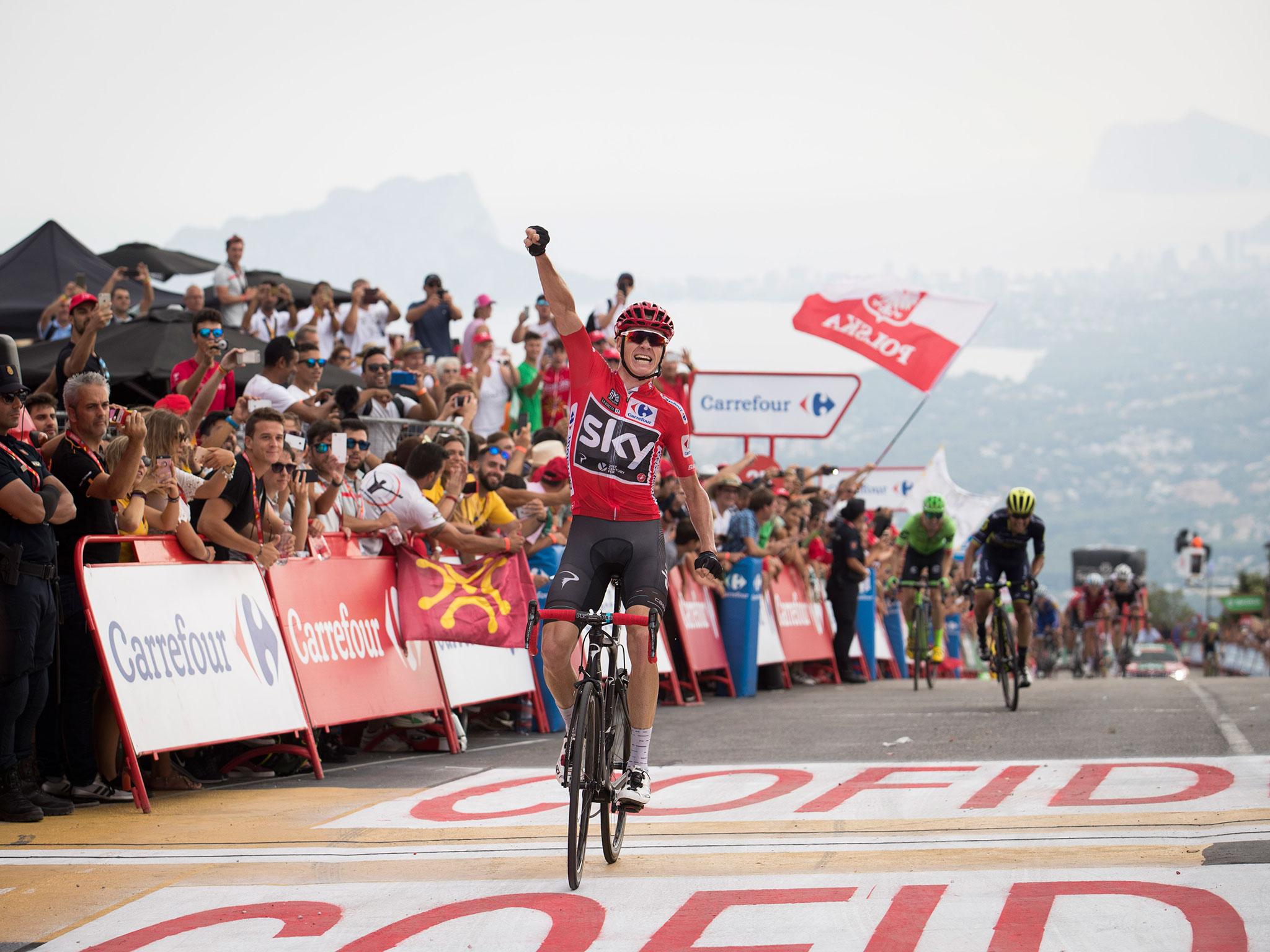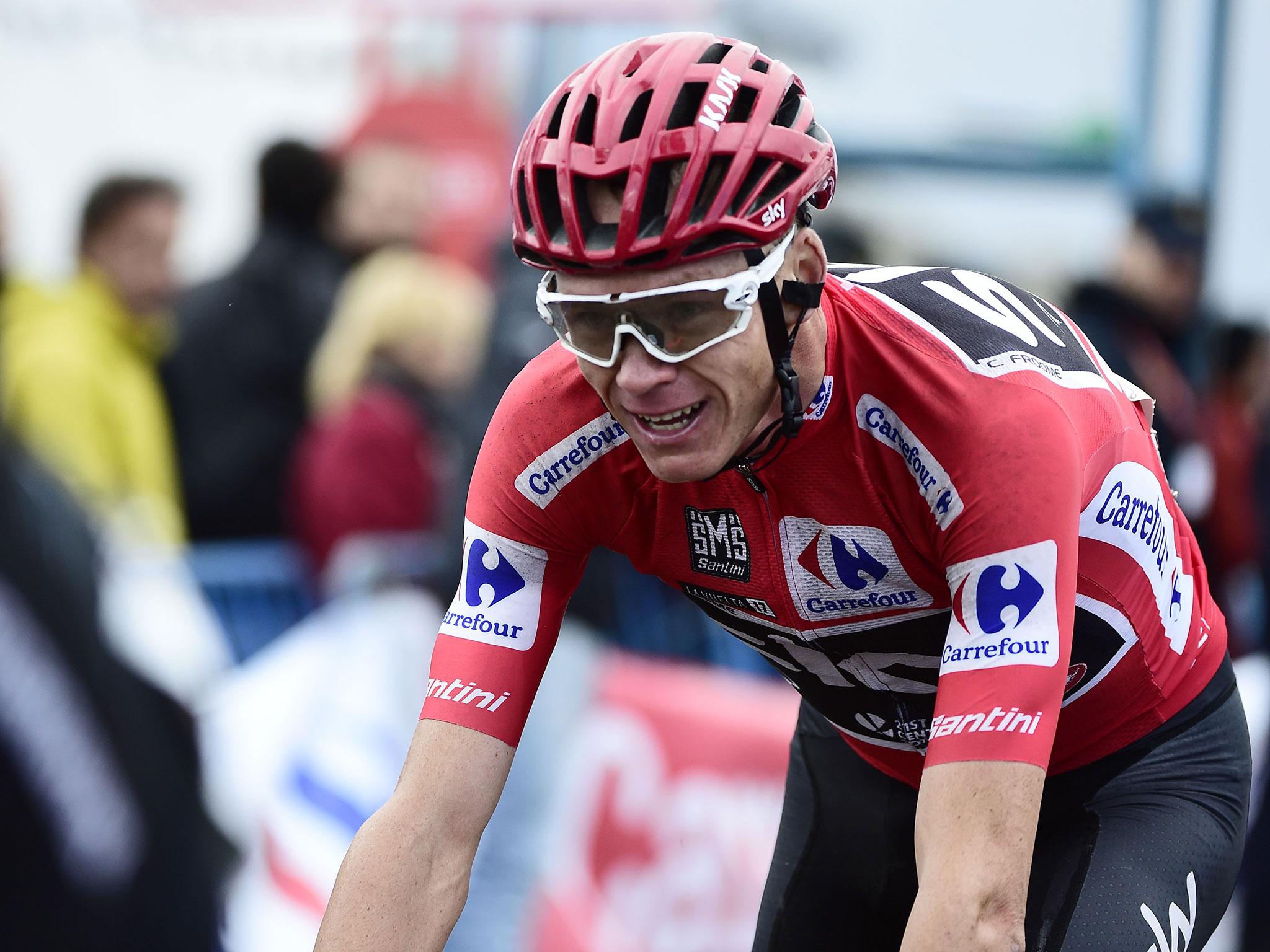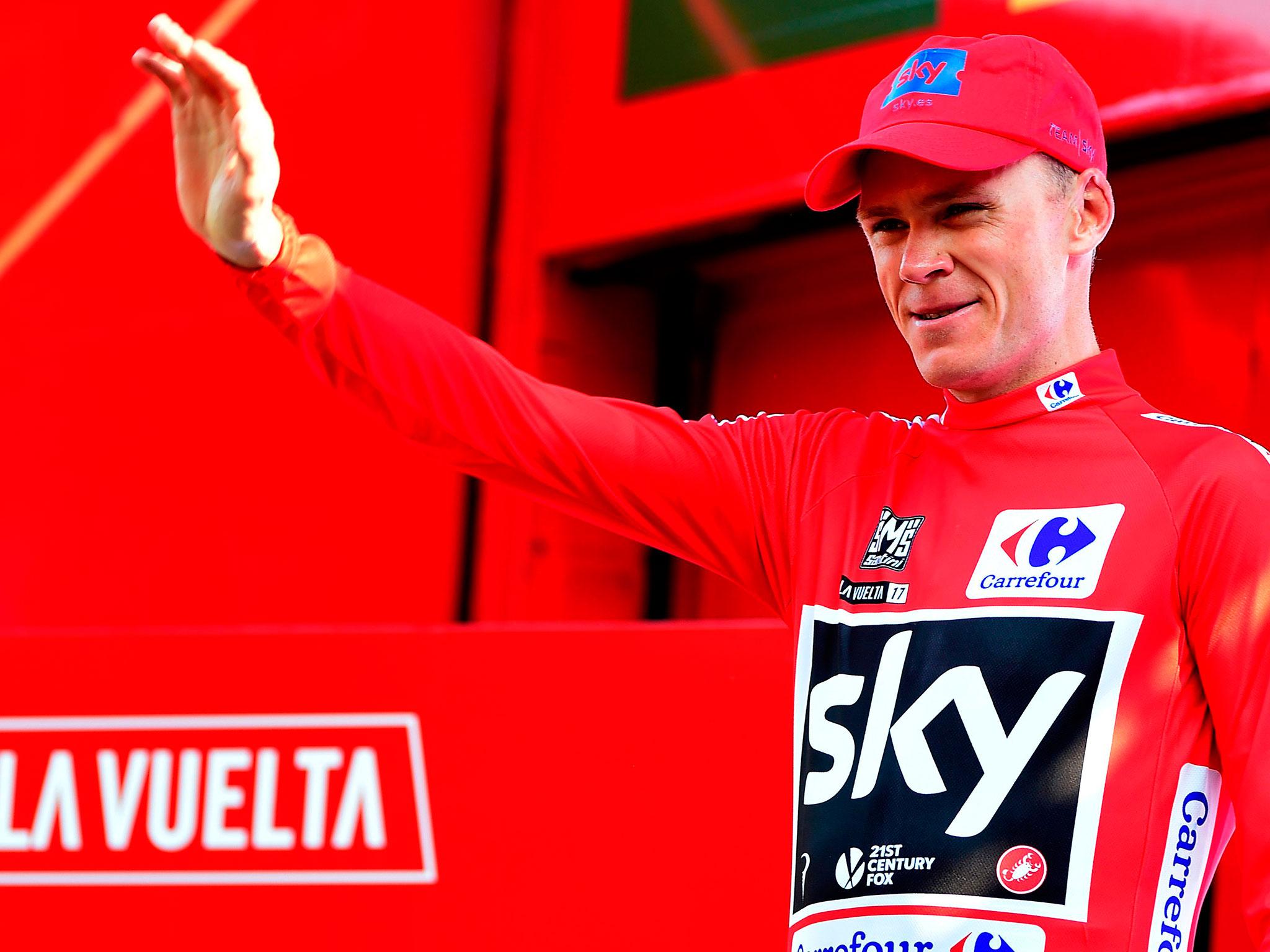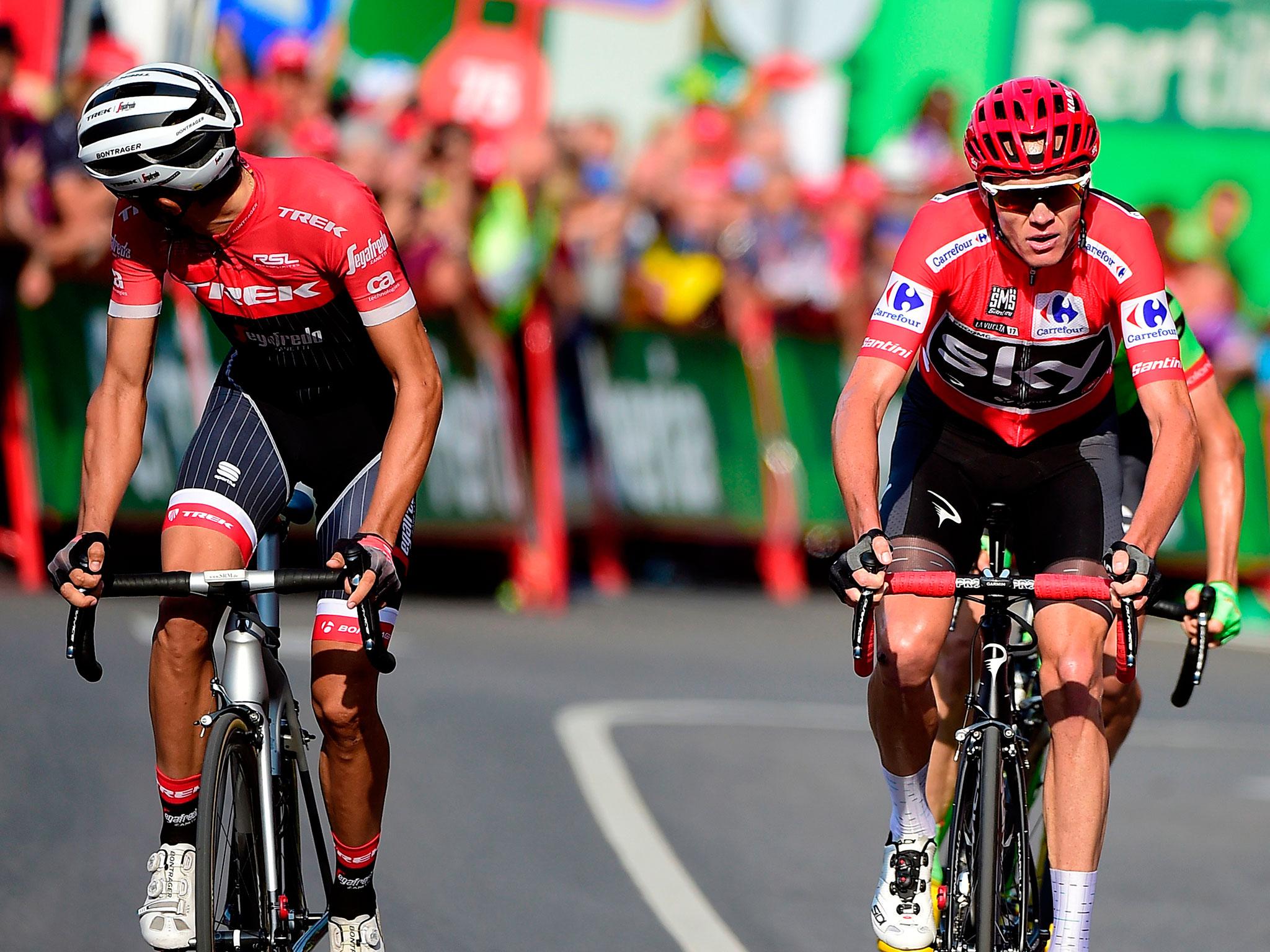Chris Froome has banished all misconceptions over his ability with latest history-making feat
After victory was confirmed on Sunday in Madrid, the Briton becomes the rider to take the Tour and Vuelta in a single year since Bernard Hinault in 1978

Your support helps us to tell the story
From reproductive rights to climate change to Big Tech, The Independent is on the ground when the story is developing. Whether it's investigating the financials of Elon Musk's pro-Trump PAC or producing our latest documentary, 'The A Word', which shines a light on the American women fighting for reproductive rights, we know how important it is to parse out the facts from the messaging.
At such a critical moment in US history, we need reporters on the ground. Your donation allows us to keep sending journalists to speak to both sides of the story.
The Independent is trusted by Americans across the entire political spectrum. And unlike many other quality news outlets, we choose not to lock Americans out of our reporting and analysis with paywalls. We believe quality journalism should be available to everyone, paid for by those who can afford it.
Your support makes all the difference.When Chris Froome said in his winner’s press conference that his victory on Sunday in the Vuelta a España “sealed his place in cycling history,” it’s hard to disagree.
In one fell swoop, Froome has become the first British winner of the Vuelta a España - one of cycling’s three Grand Tours, alongside Giro d'Italia and Tour de France - and the first rider to take the Tour and Vuelta in a single year since Bernard Hinault in 1978. Only Hinault and another five times Tour winner, Jacques Anquetil, have managed to complete this particular ‘double’ previously.
On top of that, Froome is also the first winner of two Grand Tours in the same season since Alberto Contador won the Giro d’Italia and Vuelta in 2008 and the first ever to take both the Tour and Vuelta since the latter moved dates from April to September in 1996.

The change in calendar has arguably made it much more difficult to achieve the ‘double’ in terms of mental and physical stamina, with so little time for recovery on offer. As Froome said, “there’s a reason why this [Tour-Vuelta double in July and September] hasn’t happened before.”
This victory also means, probably, an end to the criticisms of Froome, most notably by cycling’s all-time great Eddy Merckx, for “overly focussing on the Tour de France.” Even if times have changed hugely since Merckx captured five Tours de France, five Giros d’Italia and one Vuelta, the Briton has increasingly - and wrongly - been seen as a one trick pony: brilliant at the Tour but unable to shine in other fields.
An excessive focus in parts of the British media on the Tour de France is probably partly to blame for that, and Froome’s own phenomenal success rate in cycling’s blue riband event does tend to eclipse his other victories.

It’s often forgotten, too, that Froome is already a multiple winner of the Criterium du Dauphine, one of France’s hardest week-long stage races, and of the equally prestigious Tour of Romandie in Switzerland. He’s also, prior to yesterday, taken three second places in the Vuelta a España.
But now, with a Grand Tour double of the Tour and Vuelta in his palmares, and in the same year to boot, Froome has moved onto a different level altogether. He’s now only one title short of the all-time record of five Tour de France wins, jointly held by Jacques Anquetil, Merckx, Bernard Hinault and Miguel Indurain.
Victory in the Vuelta also helps debunk the myth of Froome and Sky failing to take risks. It could have gone horribly awry, given that he deliberately slowed his hitting peak form at the Tour until much later than usual to ensure he hit the ground running for the Vuelta. As a result, the Tour itself was a much tighter, tenser affair than in Froome’s previous three wins, taken by the bare minimum and only resolved for certain on the final day’s time trial.

Victory in the Vuelta also carries with it a recognition of another aspect of Froome’s greatness as a racer: his tenacity. Ever since 2011, when second place in the Vuelta - at the time, Britain’s best Grand Tour finish since Robert Millar in the Giro d’Italia 22 years before - was seen as a breakthrough result, Froome has returned to the Vuelta every year bar one, 2013, to try and win it again.
Finally succeeding - and clinching the win on Saturday’s ascent of the Angliru, the same climb where he was first let off the leash to go for his own GC bid by Sky back in 2011 - is a fitting tribute to one of his greatest qualities as a racer.
Join our commenting forum
Join thought-provoking conversations, follow other Independent readers and see their replies
Comments